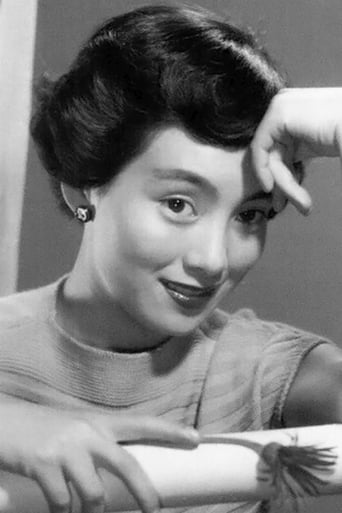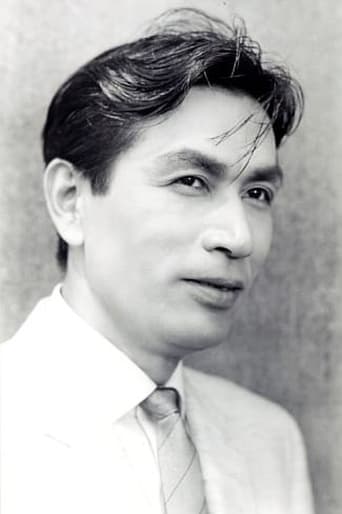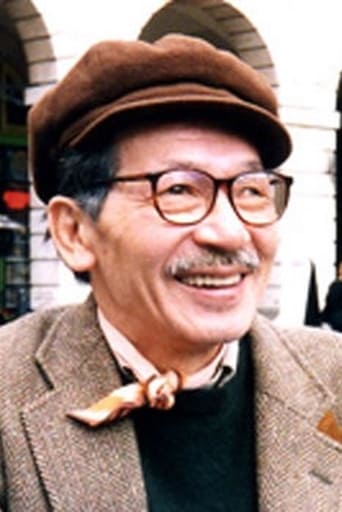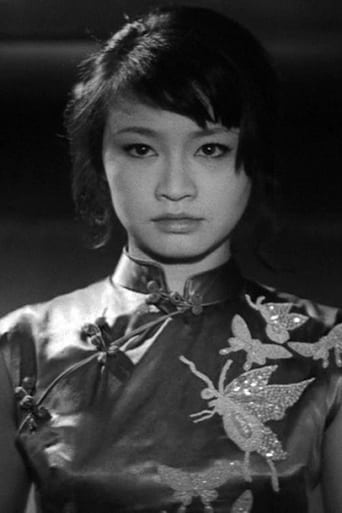ThiefHott
Too much of everything
BallWubba
Wow! What a bizarre film! Unfortunately the few funny moments there were were quite overshadowed by it's completely weird and random vibe throughout.
Sarita Rafferty
There are moments that feel comical, some horrific, and some downright inspiring but the tonal shifts hardly matter as the end results come to a film that's perfect for this time.
Billy Ollie
Through painfully honest and emotional moments, the movie becomes irresistibly relatable
WILLIAM FLANIGAN
UNDER THE FLAG OF THE RISING SUN / UNDER THE FLUTTERING MILITARY FLAG / TO RETURN TO THE FLUTTERING BATTLE FLAG (LIT.) (GUNKI HATAMEKU MOTONI). Viewed on DVD. Restoration/preservation = ten (10) stars; editing = eight (8) stars; subtitles = seven (7) stars; cinematography = five (5) stars. Director Kinji Fukasaku re-images a collection of documented/rumored war crimes/atrocities (based on a book of the same name) committed (and covered up) by the Japanese army against itself and punctuated by vivid/disturbing black and white (B&W) photographs of mostly unknown origin/authenticity. Fukasaku employs a clever plot device (of a lonely war widow's 26-year search for the truth about her husband's death) to dramatize military events that may or may not have occurred (there are many twists and turns plus a surprise ending), the power of post-war politics (as practiced by former military officers), and the lasting impact of war on veterans such as PTSD (post-traumatic stress disorder) and being left behind as the nation moves on (sound familiar?). The Director made his movie when yet another war (in Vietnam) was in full swing which he often references albeit indirectly. Actors are regularly give free reign to go to extremes so that Fukasaku can triple underline his anti-war stance (these performances often come across as simply silly). Lead actress Sachiko Hidari is a standout not only due to her plum role (as the truth-searching widow), but also her ability to portray an unsophisticated-but-stubborn village widow using a down-home dialect and keeping a slight smile even when delivering lines of serious dialog. Actress Sanae Nakahara is also excellent as the philandering wife of a veteran who only learns about her husband's (fabricated) war activities when Hidari's character pays a visit (Nakahare can change the nature/substance of her performances on a proverbial dime!). Cinematography (2.35 : 1, color, B&W) is uneven with many exterior shots suffering from hand-held camera artifacts and an overall graininess (to better blend with stock footage and photographs?). Editing is outstanding as the film smoothly moves back and forth between color and B&W, and from moving images to photographs. Music is inconsequential and virtually "invisible." Subtitles are fine. The condition of the original source material is outstanding. WILLIAM FLANIGAN, PhD.
blue_green1
This film puts most war movies to shame. Here is a cinematically beautiful yet shockingly realistic depiction of what war is like. The betrayal of humanity involved on numerous levels is juxtaposed with the individual soldier's will to survive and with one widow's need to know the hidden truth about how her husband died. Her journey of naivete to knowledge and understanding is the central character arc that traverses through the accounts of several veterans from her husband's unit. The gorgeous photography features shot after shot of beautiful landscape that serves as a kind of silent and solitary witness to the mayhem.Nowhere do you see the cloying sentimentality and heroism that stink up so many war films. I give it the highest rating.
Squaredealer33
There are three great war movies. This film is at the top of the list. You will not be able to get these images out of your thoughts. I would not categorize this film as anti-war; rather, I'd say it takes a realistic look at the battle/conflict it portrays and does not flinch at failing to romanticize any part of the story. You might see the narrator's story somewhat romantic, but the loss suffered here justifies the actions of the character. All in all a brilliant story of war like you have never seen it before. The story also examines bureaucratic Japan after the war – that's where the story really packs a punch.There is beautiful scene involving a last meal that puts this writer/screen writer and this director at the top of my list. Great movie.By the way, the other two great war movies are, "Battle of Algiers" and "Queimada."
fertilecelluloid
Searing indictment of war and the individuals discredited in its aftermath. Directed by the masterful Kinji Fukasaku, it is a harsh, bleak work that uses monochrome flashbacks with occasional explosions of color, war photographs, and grim narration to tell a terrible tale.Sachiko Hidari, a war widow, has spent twenty-six years searching for the truth about her husband's death. Was he executed? Was he a deserter? Was he a hero? As the government adheres to an official, flawed version of events, the stubborn woman seeks her own answers by speaking to the men who served with her husband. The stories told by these damaged soldiers comprise the bulk of the movie and accounts are complicated by each man's "truth".Exceptionally well acted and directed with a savage determination to depict the insanity of war in its rawest state, this is surely one of Fukasaku's greatest achievements and certainly one of the most honest portraits of homosapien behavior ever branded to celluloid.





